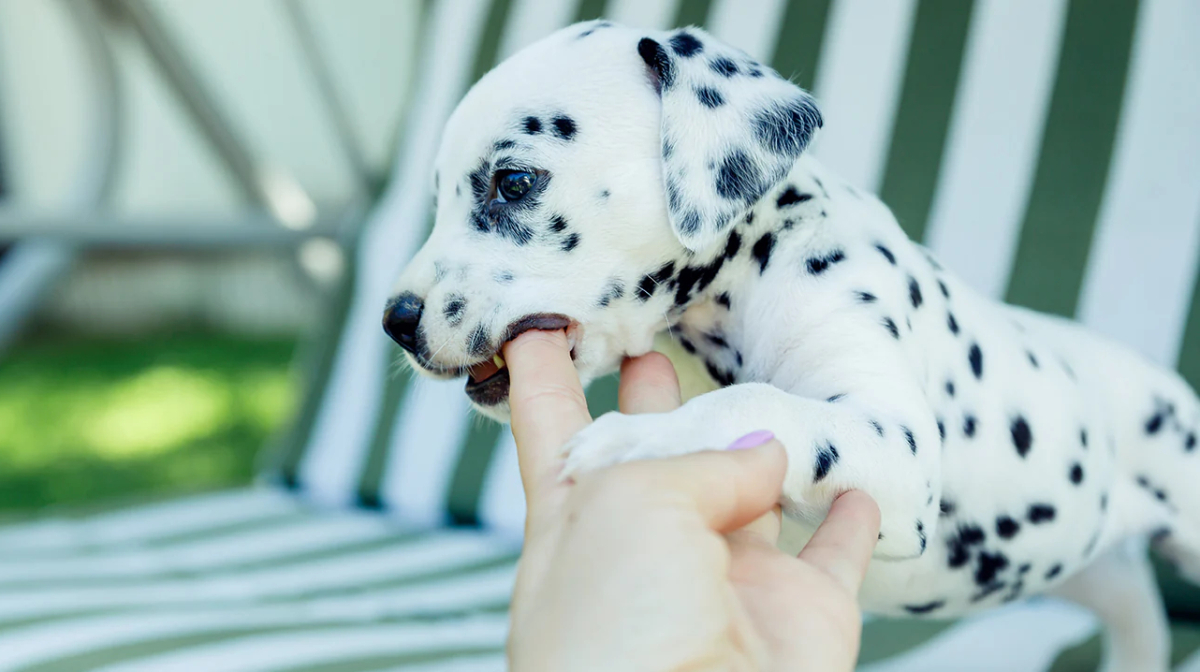
Welcoming a new pet into your home is an exciting time for the whole family but knowing what questions to ask a dog breeder can be confusing. Responsible breeding practices play a key role in the well-being of any dog breed, so it is important to choose a trusted, registered dog breeder. Knowing the right questions to ask a dog breeder is key to verifying that you have picked an ethical breeder and this will help ensure the health of your new puppy. We will cover all of the key questions to ask and how to check if a dog breeder is registered in this article.
The importance of asking the right questions
Visiting the breeder to ask key questions while meeting the puppy and their mother will help you make the best decision before bringing a new pet into your home. Visiting the breeder allows you to assess the animals’ living conditions to verify that they are clean, dry, warm and safe. You should also make sure the puppies look clean, healthy and happy, this includes being vigilant for any signs of illness. When visiting, it's important to see the puppies with their mother, check that she is happy and healthy, and not display any anxious behaviour, fear or stress.
You can ask for their health report (vaccinations, flea, worming treatments, microchipping) and enquire about the food they have been given to ensure they are fed a nutritious and healthy diet. Puppies should never leave their litter before 8 weeks old, so asking about the age of puppies is also key before adopting them.
15 key questions to ask a dog breeder
These are the most important questions to ask a dog breeder before/during your first visit to their home.
Can you confirm that you are a registered dog breeder?
Ensure the dog breeder is registered before visiting puppies. We also advise choosing a Kennel Club registered breeder whenever possible to ensure you are supporting ethical breeding practices and high welfare. You can find KC Assured Breeders by checking their website.
Can you provide me with information regarding the parents of the puppy?
You should learn as much as possible about the puppy’s parents to make an informed decision. You should always try to see the mother during your visit and enquire about her temperament, health testing and any health concerns you should be aware of. The sire of a litter (father) does not normally live with the breeder, they normally use a stud dog. However, the breeder will have health information about the Sire and can provide you with photos but not being able to meet him during your visit is not a cause for concern. You could ask the age of the mother to ensure she is between 2-6 years old and enquire if she's had other litters.
Can I meet all of the puppies and their mum?
You should be allowed to see all the puppies to help you decide which puppy would best suit your family.
Can you tell me how old the puppies are and if have they been weaned?
In the UK it is illegal for a licensed breeder to sell puppies under 8 weeks old. They should not be separated from their mother before 8 weeks. Verify the puppy’s age when you visit the breeder and ask what age they will be ready to leave.
Can you tell me if the puppies have been socialised? Have they seen children?
When welcoming a new puppy into your home it is important to know if they have been socialised. The ‘critical socialisation period' for puppies starts at around 2.5 weeks and ends at 14 weeks of age. Socialisation will have a profound effect on their temperament for the rest of their life. It will also impact how well they get on with children, pets and other family members. You can also ask about any basic puppy training concerns.
What dog food would you recommend?
Ask the breeder what food they have been feeding the puppies and what they recommend to ensure they are fed a nutritious and healthy diet. It is important that puppies are fed complete and balanced puppy food to ensure they are getting all of the nutrients in the right amounts for healthy growth and development. Depending on the age of the puppies during your visit, they may still be feeding from Mum too.
Can you tell me more about health testing and screening?
You can research the specific breed to see what tests are required for each. Different breeds have different health concerns, so make sure you ask about genetically inherited conditions as well as worming, flea treatments and vaccinations. You should also request to see certificates for the Mother and Father's health status for any specific conditions.
Do the puppies have any current health issues?
The breeder should be honest about any health issues the puppies have had since birth.
Can you show me around the puppy’s living conditions?
While you visit the puppy you should take time to enquire about and assess the animals’ living conditions to verify that they are clean, dry, warm and safe. You should also make sure the puppies look clean, healthy and happy, this includes being vigilant for any warning signs of illness to ensure ethical welfare.
When will the puppy be microchipped?
It is a legal requirement for puppies to be microchipped before they go home with you.
Can you tell me more about any future support you might provide?
Good breeders should provide written support on training, feeding, worming and vaccinations. You can find more information on this in our getting a puppy checklist.
Have you been to any Dog Shows?
These are a great way to find reputable breeders and meet some of the dogs of the breeds you like. Discover Dogs at Crufts has representatives from all of the breeds of dogs and gives you a chance to talk to breeders and make a decision about which breed is best for your family.
Will there be a contract of sale?
This is essential and will confirm both the breeder's responsibilities to the puppy as well as your own.
Can I see the family tree?
If you are buying a pedigree dog this should be available and will give you more information about their ancestry.
Can the puppy be returned?
Responsible breeders should ensure that puppies can be returned and rehomed ethically if you face any extenuating circumstances.
Health Testing and Screening
You can also ask the breeder about health and genetic testing for your puppy. Health tests are breed-dependent as they screen for different illnesses, diseases and inherited conditions in the mother, father and puppies. Research the specific breed to see what tests are required for each.
The Kennel Club recognises several popular breeds as “high profile breeds” due to their likelihood of developing genetically inherited conditions. The Kennel Club advises that these breeds should be tested for genetic abnormalities.
Other health tests to be aware of include tests for, Hip dysplasia, Elbow dysplasia, Eye disease and Syringomyelia.
Tips on finding the right breeder
Finding a trusted and reputable breeder is the best investment you can make in your puppy’s future but it can sometimes be difficult. Finding registered breeders is essential, however, for greater reassurance we also advise finding a Kennel Club Assured Breeder. You can find KC Assured Breeders by checking their website. Choosing a Kennel Club breeder is one way to make sure you are supporting ethical breeding practices and higher welfare, however, good quality breeders can still be found who are not registered. Training clubs and your local vet can give you further recommendations.
How to check if a dog breeder is registered?
Many prospective pet owners aren’t sure how to check if a dog breeder is registered. You can ask for a breeder's licence number (Local Authority Licence) and verify this with your local council.
Are dog breeder contracts enforceable?
A ‘dog breeder contract’, more commonly known as a ‘puppy contract’, is a document that a reputable dog breeder should provide. These contracts are generally statements of intent, however, once the contract has been signed you could sue or be sued for breach of contract.
The document will outline your responsibilities and the breeder’s responsibilities. The contract should also provide information about possible health concerns, tests or claims.
Do dog breeders need to be registered?
Yes, in the UK anyone breeding more than 3 litters a year must register with their local council, however, these specific litter requirements may vary depending on your location.
Owning a puppy is one of the most memorable times of a pet owner’s life, as you build a bond that will last a lifetime. To ensure you get the best possible start for you and your puppy, spend time researching the right breeder. Unethical breeding practices are not only cruel but can also pose serious risks to your puppy’s health. Responsible breeders will be happy to take the time to answer your questions and show you around. In fact, most responsible breeders will actually be interviewing you to check that you are the right family for their puppy! Ask the right questions and trust your gut.

Related Articles








